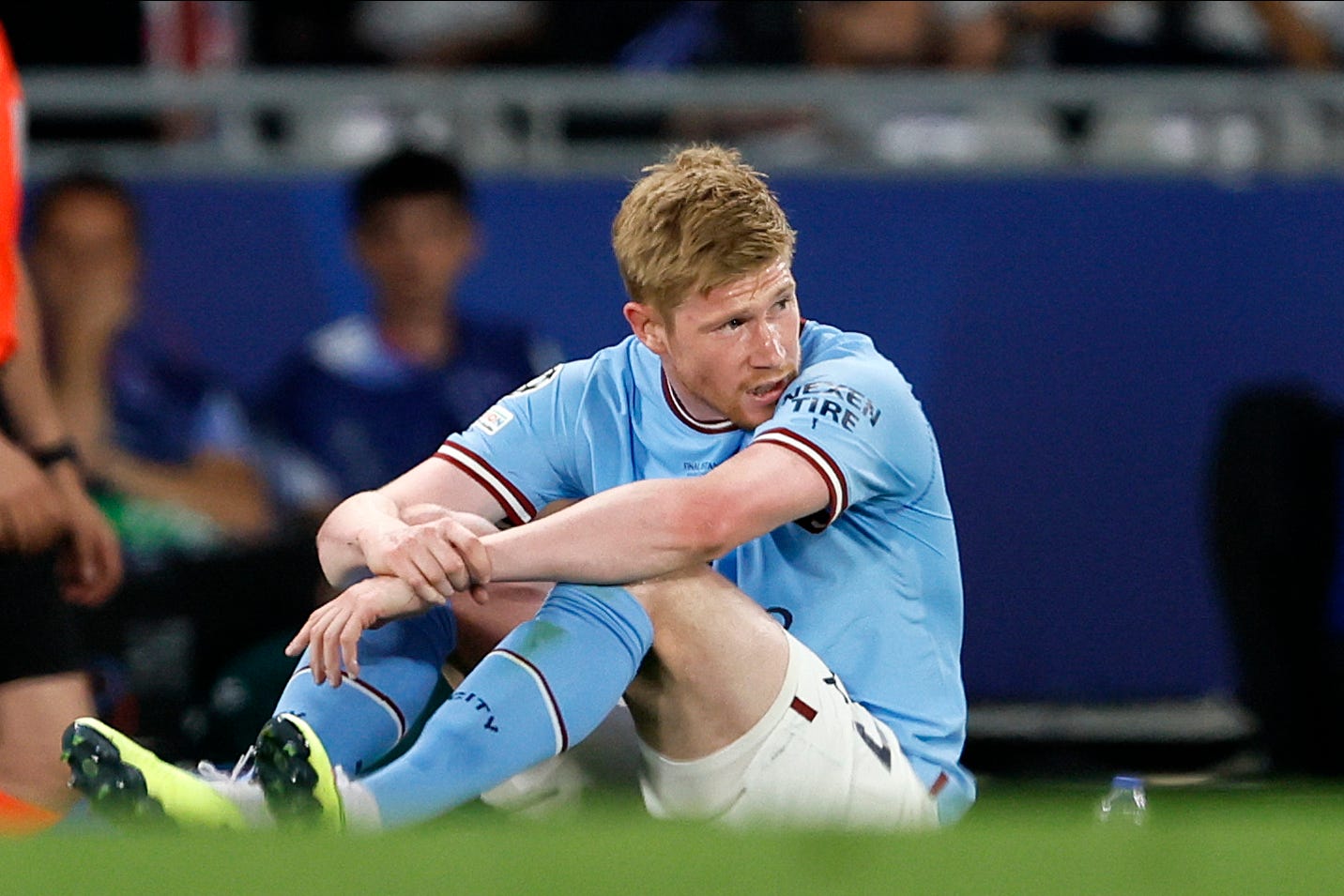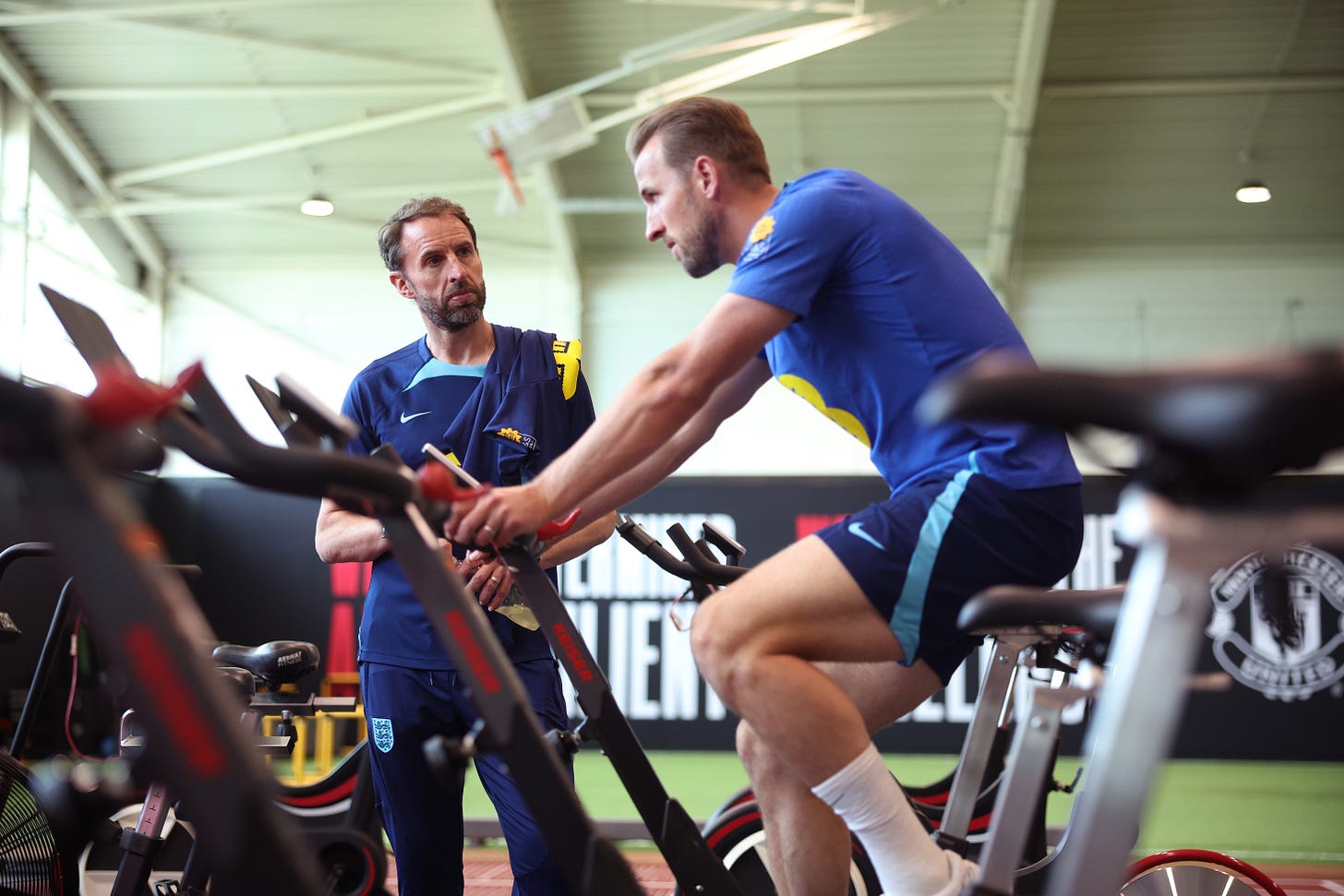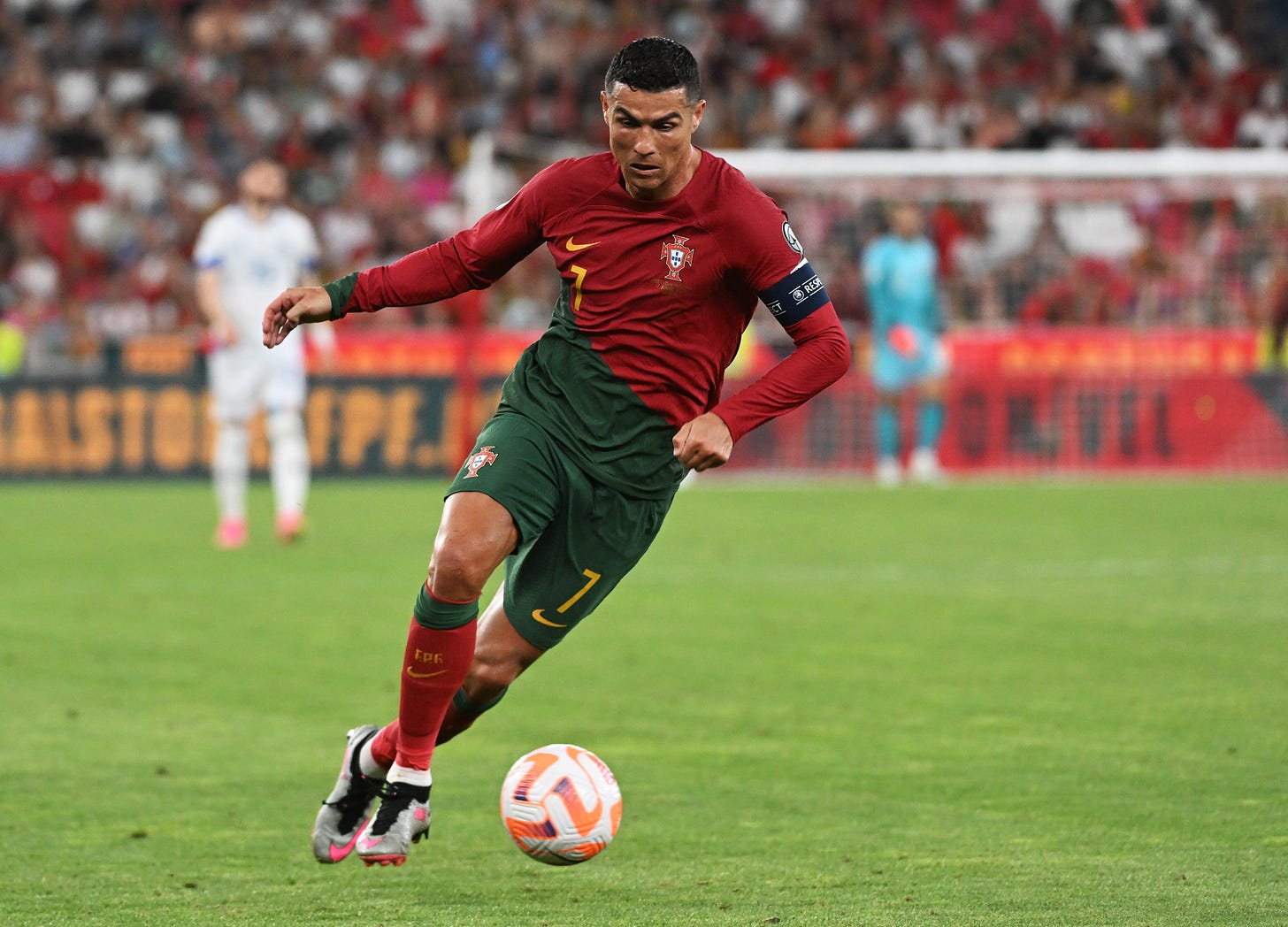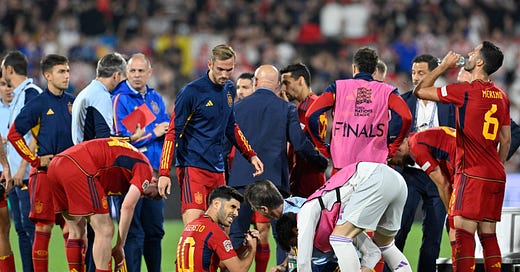Too much football: 'Exhausted' players risking their health in congested calendar
The European club season may have finished, but the games continue to come thick and fast with international qualifiers, the Nations League and more...

It has been over a week since Manchester City beat Internazionale in the European season’s showpiece fixture to win the Champions League and complete a treble. The following day, there were play-offs in Italy, Portugal, the Netherlands and Spain, along with a cup final in Turkey. Finally, a campaign which had kicked off in early August – or late July in the Championship’s case – was over. But the break did not last long.
On Wednesday night, 37-year-old Luka Modrić played 119 minutes for Croatia in their extra-time win over the Netherlands. The midfielder, who made 52 appearances for Real Madrid in 2022-23 and started all seven of his country’s matches at Qatar 2022, was then on the pitch for another two hours as Croatia lost to Spain in the UEFA Nations League final on Sunday.
Spain’s trophy was their first since 2010 and Marca described midfielder Rodri as their only world-class player these days. So despite his 56 club appearances in 2022-23 and winner for City in the Champions League final, there was no rest for the midfielder yet. He was a starter in the win over Italy last Thursday and again in the final versus Croatia.
“The people who organise these tournaments, can’t they see that the players arrive exhausted?” former Spain midfielder Cesc Fàbregas wrote on Twitter during Sunday’s match, which was decided on penalties after a 0-0 draw. They certainly looked it and it is hardly surprising after a long season which was interrrupted in the winter for the World Cup. Indeed, perhaps the one advantage of holding that tournament in November and December was that, for once, the players were fresh. Not now.

Another City midfielder, Kevin De Bruyne, revealed after his injury in the Champions League final that he had been playing with a torn hamstring for two months. Until it finally snapped in Istanbul. Meanwhile, team-mate Jack Grealish’s Champions League celebrations have made headlines after images of his partying were published by newspapers, magazines and all over social media, yet even those festivities were cut short by his call-up for England. Perhaps sensibly, he was an unused substitute for Gareth Southgate in the 4-0 EURO 2024 qualifying win away to Malta last week.
There was no such luck for Harry Kane. The Tottenham striker has no real replacement for club or country. And he’s the England captain. So he played from the start in Valletta, although he did get a breather after an hour with the Three Lions in full control. Footballers all want to be important, but the best ones are rarely rested. There is too much at stake.
Advances in fitness, conditioning and diet are allowing players to prolong their careers in the modern era, but footballers these days are also pushing their bodies to the limits to meet the huge physical demands of the game. And they are not being helped by a constant increase in fixtures.

In international football, reaching 100 caps was previously considered an extraordinary achievement. It still is, but with more games played these days, it is not nearly as uncommon as it once was. On Tuesday, Cristiano Ronaldo is set to become the first footballer in the history of the men’s game to reach 200 senior appearances for his country. And Lionel Messi, two years his junior, is on 175 caps for Argentina.
Messi has said he will not play in the next World Cup, while Ronaldo also seems unlikely to be involved in 2026, but the tournament in USA, Canada and Mexico will feature even more matches than any previous edition as it is expanded from 32 teams to 48.
FIFA have also considered hosting a World Cup every two years and changes to the Club World Cup have already been announced, with the current seven-team format set to give way to a 32-club competition in 2025.

Those proposals have brought strong criticism from LaLiga and also the Professional Footballers’ Association. “We know that the current workload players face is having an ongoing impact on their wellbeing, both on and off the pitch. We can’t simply push them until they break,” the PFA said in a statement when the plans were announced.
Premier League managers, including Liverpool’s Jürgen Klopp and Manchester City’s Pep Guardiola, have also been critical of the amount of games in the English football calendar. Last season, Liverpool were involved in every possible fixture apart from the Community Shield as they fought for silverware on four fronts. That took its toll this term, with the Reds off the pace for much of the campaign.
After Tuesday, there are no more qualifiers at senior level this summer, although the Under-21s will be in action for a couple of days. Then, finally a break. But for teams outside of the continent’s top-five leagues, qualifying matches for European club competitions take place in July, meaning they will be need to be back in training sooner rather than later.

The women’s World Cup also kicks off on July 20th in Australia and New Zealand and the timing of that tournament has been questioned by some of the players. “It means you get a few weeks off before the tournament but you end up wanting to stay fit and doing some training on your own. It’s afterwards when you need the break and I don’t think two weeks is enough,” Sweden’s Magdalena Eriksson wrote in a column for iNews in December. “There’s simply too much football and it’s starting to hurt players like me,” she added.
There have been a catalogue of serious injuries in the women’s game over the past couple of years and the exact cause is unclear. Eriksson believes it may be because women received inferior treatment to men earlier in their careers and stresses that more research is needed before the amount of games is increased.
Along with the greater risk of injury for both women and men, fatigue is also a major concern given the sheer amount of games in the current calendar, and that affects the quality of the product. So although elite footballers are extremely well paid, they cannot be expected to perform at the same high level in so many matches, for such extended periods.
But as usual, financial interests seem to take precedence. Soon, the pre-season friendlies will be back on our screens from the United States, Asia and all over the world as players are expected to make long and gruelling trips to line the pockets of clubs, federations, sponsors and broadcasters. It’s a global game these days – and the football season is becoming a year-long thing now. Where will it stop?




Nice piece. The work load keeps increasing. I don't think the players (or players associations) are actually ready for the change. Cause some of these players or their leaders will still work as pundits in 'these extra work loads', right after condemning it.
Good read!